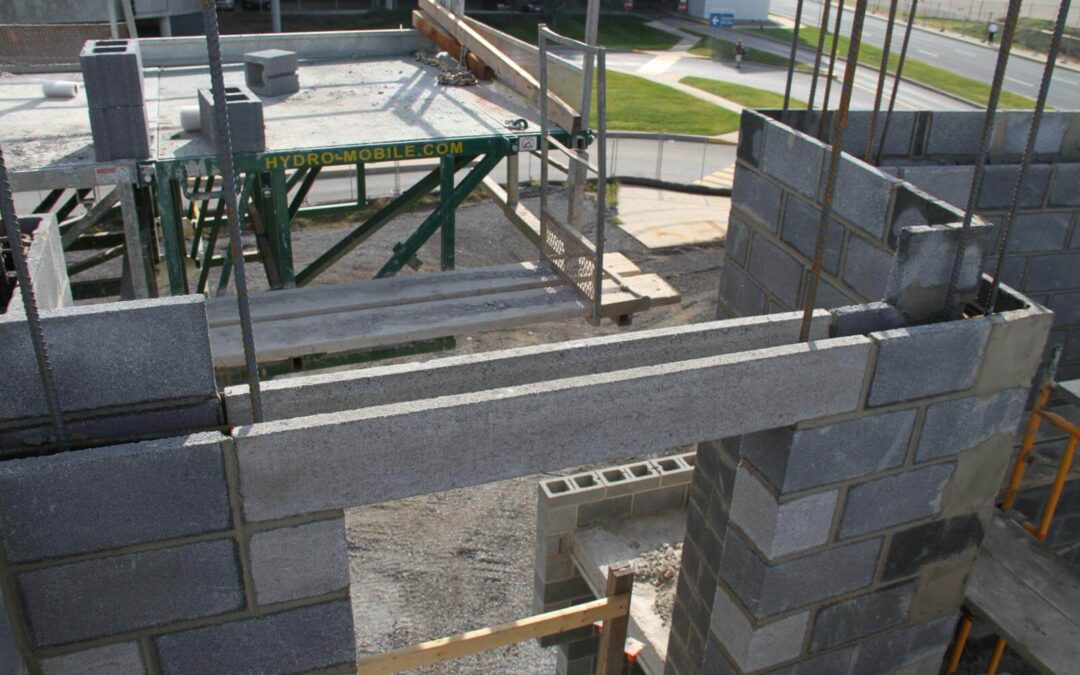Concrete Masonry Units (CMUs), commonly known as concrete blocks, are fundamental elements in modern construction. Among the various types of CMUs, lintel blocks play a crucial role in providing structural support and architectural integrity to masonry structures. In this article, we delve into the world of CMU lintel blocks, exploring their characteristics, applications, and significance in the realm of masonry construction.
Understanding CMU Lintel Blocks:
CMU lintel blocks are specialized concrete blocks designed to span openings such as doors and windows in masonry walls. Their unique design allows them to distribute the load evenly, providing support to the structure above the opening.
Composition and Strength:
Lintel blocks are manufactured using high-strength concrete, ensuring they can withstand the loads imposed by the masonry units above. Reinforcement bars are often embedded within lintel blocks to enhance their tensile strength, making them capable of resisting bending stresses.
Types of CMU Lintel Blocks:
There are various types of lintel blocks, including standard lintels, corner lintels, and T-shaped lintels. Standard lintels are used for regular door and window openings, while corner lintels provide support at the intersection of walls. T-shaped lintels, as the name suggests, resemble the letter ‘T’ and are employed in larger openings or where increased load-bearing capacity is required.
Installation Process:
Installing CMU lintel blocks involves careful consideration of factors such as load distribution, proper alignment, and secure anchoring. The lintel must placed with its load-bearing side facing upward to ensure effective support.
Advantages of Using CMU Lintel Blocks:
- Structural Integrity: Lintel blocks enhance the structural stability of masonry walls by effectively distributing loads over openings.
- Cost-Effective: CMU lintel block offer a cost-effective solution compared to alternative methods of creating lintel support, such as steel beams.
- Fire Resistance: Concrete lintel blocks provide fire resistance, contributing to the overall safety of the structure.
- Ease of Installation: Lintel blocks are relatively easy to install, making them a practical choice for masons and builders.
Applications in Masonry Construction:
CMU lintel blocks find widespread applications in various construction scenarios:
- Residential Construction: Used to support door and window openings in houses and apartments.
- Commercial Buildings: Employed in the construction of office buildings, retail spaces, and other commercial structures.
- Industrial Facilities: Utilized in the creation of robust openings in industrial buildings.
Innovations in Lintel Block Design:
As construction technology advances, there are ongoing innovations in lintel block design. Some lintel blocks now come with integrated thermal insulation, contributing to energy efficiency in buildings. Additionally, manufacturers are exploring ways to reduce the environmental impact of lintel block production through sustainable practices.
Conclusion:
CMU lintel blocks play a pivotal role in the world of masonry construction, providing the necessary support and strength to openings in walls. As technology and construction practices evolve, lintel block designs continue to adapt to meet the changing needs of the industry. Understanding the importance of lintel blocks is essential for architects, builders, and anyone involved in the construction process, as they contribute not only to the structural integrity but also to the overall efficiency and safety of the built environment.

